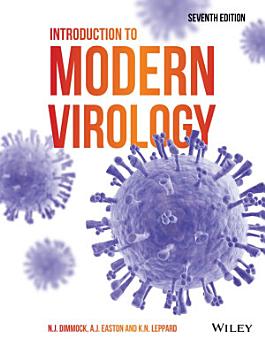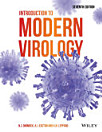Introduction to Modern Virology: Edition 7
এই ইবুকখনৰ বিষয়ে
- The consideration of immunology now covers two chapters, one on innate immunity and the other on adaptive immunity, reflecting the explosion in knowledge of viral interactions with these systems.
- The coverage of vaccines and antivirals has been expanded and separated into two new chapters to reflect the importance of these approaches to prevention and treatment.
- Virus infections in humans are considered in more detail with new chapters on viral hepatitis, influenza, vector-borne diseases, and exotic and emerging viral infections, complementing an updated chapter on HIV.
- The final section includes three new chapters on the broader aspects of the influence of viruses on our lives, focussing on the economic impact of virus infections, the ways we can use viruses in clinical and other spheres, and the impact that viruses have on the planet and almost every aspect of our lives.
A good basic understanding of viruses is important for generalists and specialists alike. The aim of this book is to make such understanding as accessible as possible, allowing students across the biosciences spectrum to improve their knowledge of these fascinating entities.
লিখকৰ বিষয়ে
Nigel Dimmock is an internationally acclaimed virologist who has spent the major part of his career at the University of Warwick where he is an emeritus Professor. His main research interests are influenza virus and antiviral strategies.
Andrew Easton is a Professor of Virology at the University of Warwick. His research focuses on the molecular biology and pathogenesis of respiratory viruses, particularly respiratory syncytial virus and influenza virus and the control of translation of virus mRNA.
Keith Leppard is an Associate Professor (Reader) at the University of Warwick. His research focuses on adenoviruses: their replication, the effects of viral proteins on the host cell, and on the development of the virus as a gene delivery vehicle.





